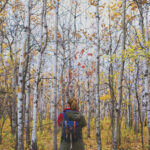South Africa, a land of stunning landscapes and vibrant culture, beckons travelers from around the globe. Wondering “Is Travel To South Africa Safe?” SIXT.VN is here to guide you through everything you need to know for a secure and unforgettable journey. With our expert travel advice, convenient airport transfer services, and carefully selected hotel options, you can explore South Africa with peace of mind. Let us help you navigate South Africa safely, ensuring your travels are secure, enjoyable, and filled with unforgettable moments.
1. Understanding Safety Concerns in South Africa
Is South Africa safe for tourists? While South Africa offers incredible experiences, it’s crucial to be aware of the potential safety concerns. Crime, civil unrest, and even kidnapping are issues that travelers should be mindful of. The U.S. Department of State advises exercising increased caution due to these factors. SIXT.VN wants you to be fully informed so you can travel confidently.
1.1 What are the primary safety risks in South Africa?
The main risks include violent crime such as robbery, carjacking, and mugging, especially in urban areas after dark. There is also a threat of terrorism and frequent demonstrations that can turn violent. Kidnapping, though rarer, is a concern for foreign travelers.
1.2 Where are the most dangerous areas in South Africa?
Downtown areas of big cities are generally more dangerous, especially at night. Informal settlements (townships) also pose higher risks. It’s advisable to avoid these areas unless you’re with someone familiar with the location. According to research from the South African Institute of Race Relations in 2023, townships often experience higher crime rates due to socioeconomic factors.
1.3 How does South Africa compare to other countries in terms of safety?
South Africa has a higher crime rate compared to many developed countries. However, with the right precautions, tourists can significantly reduce their risk. Always stay informed and follow local advice to ensure your safety. The Global Peace Index consistently ranks South Africa lower than many European and North American countries, reflecting higher levels of crime and violence.
2. Crime in South Africa: What You Need to Know
Crime is a significant concern in South Africa, and it’s essential to understand the types of crime and how to avoid becoming a victim.
2.1 What types of crimes are most common in South Africa?
Violent crimes like robbery, assault, and carjacking are prevalent, especially in urban areas. Petty theft, such as pickpocketing and bag snatching, is also common in tourist spots. According to the South African Police Service, robbery and assault are the most frequently reported crimes affecting tourists.
2.2 How can I protect myself from robbery and theft?
- Avoid walking alone, especially after dark.
- Do not display signs of wealth, like expensive jewelry or watches.
- Stay aware of your surroundings, particularly in tourist areas.
- Keep your belongings secure and out of sight.
2.3 What should I do if I am confronted by a criminal?
- Remain calm and do not resist.
- Hand over your valuables. Your safety is more important than your possessions.
- Report the incident to the local police as soon as possible.
3. Terrorism Risks in South Africa
While the risk of terrorism in South Africa is relatively low, it’s essential to be aware of the potential threat.
3.1 What is the current terrorism risk level in South Africa?
The U.S. Department of State advises that there is a risk of terrorist violence in South Africa. It’s crucial to stay informed and vigilant.
3.2 How can I stay safe from terrorism?
- Be aware of your surroundings.
- Monitor local news for any potential threats or warnings.
- Avoid crowded places and public transportation if possible.
- Report any suspicious activity to the authorities.
3.3 What resources can I use to stay informed about terrorism risks?
- U.S. Department of State’s country reports on terrorism
- Local news outlets
- Travel advisories from your home country
4. Civil Unrest and Demonstrations
Demonstrations and civil unrest are common in South Africa and can sometimes turn violent.
4.1 Why do demonstrations occur in South Africa?
Demonstrations often stem from socio-economic issues, political grievances, and labor disputes. These can disrupt traffic, transportation, and other services.
4.2 How can I avoid getting caught up in civil unrest?
- Avoid demonstrations and crowds.
- Monitor local news for information on planned protests.
- If you encounter a demonstration, leave the area immediately.
- Follow instructions from local authorities.
4.3 What should I do if I am caught in a demonstration?
- Stay calm and do not engage with protesters.
- Move away from the crowd as quickly and safely as possible.
- Seek shelter in a secure location.
- Contact local authorities or your embassy for assistance.
5. Kidnapping Risks and Prevention
Kidnapping is a concerning threat in South Africa, particularly for foreign travelers.
5.1 Who is at risk of being kidnapped in South Africa?
Kidnappers often target U.S. citizens and other foreign travelers for financial gain. Victims may be forced to withdraw cash or provide online account passwords.
5.2 How can I reduce my risk of being kidnapped?
- Be discreet about your travel plans and avoid discussing them in public.
- Vary your routes and times of travel.
- Avoid displaying signs of wealth.
- Be cautious when using ATMs, especially at night.
- Consider hiring a reputable security service if you feel particularly vulnerable.
5.3 What should I do if I am kidnapped?
- Remain calm and do not resist.
- Follow the instructions of your captors.
- Try to observe and remember details about your surroundings and captors.
- Cooperate as much as possible to ensure your safety.
6. Essential Safety Tips for Traveling in South Africa
To ensure a safe and enjoyable trip to South Africa, consider these essential safety tips.
6.1 General Safety Precautions
- Avoid walking alone, especially after dark: Stick to well-lit and populated areas.
- Do not display signs of wealth: Keep expensive jewelry and watches out of sight.
- Drive with doors locked and windows closed: This helps prevent smash-and-grab attacks.
- Stay aware of your surroundings: Pay attention to who and what is around you.
- Stay alert in tourist spots: Be mindful of pickpockets and petty theft.
6.2 Transportation Safety
- Use reputable transportation services: SIXT.VN offers reliable airport transfer services to ensure your safe arrival and departure.
- Avoid driving outside metropolitan areas at night: Road hazards and potential crime make nighttime driving risky.
- Plan your routes in advance: Use GPS and stay on well-traveled roads.
6.3 Accommodation Safety
- Choose reputable hotels: SIXT.VN can help you find safe and comfortable accommodations.
- Keep your hotel room door locked at all times: Use the deadbolt and security chain.
- Do not open the door for strangers: Verify their identity with the front desk.
- Store valuables in the hotel safe: Keep your passport, money, and other important items secure.
7. Navigating South Africa: Transportation Tips
Choosing the right mode of transportation is crucial for your safety and convenience.
7.1 Is it safe to drive in South Africa?
Driving in South Africa can be safe if you take the necessary precautions. Avoid driving at night, especially outside of urban areas, due to road hazards and the potential for crime.
7.2 What are the best transportation options for tourists?
- SIXT.VN Airport Transfer: Our reliable airport transfer service ensures you arrive safely at your destination.
- Reputable Taxi Services: Use well-known taxi companies or ride-sharing apps.
- Organized Tours: Join organized tours to explore popular attractions safely.
7.3 How can SIXT.VN help with transportation?
SIXT.VN offers convenient and reliable airport transfer services, ensuring you have a safe and comfortable journey from the airport to your hotel. With our services, you can avoid the risks associated with public transportation or unfamiliar taxi services.
8. Health and Medical Considerations
Taking care of your health is essential when traveling to South Africa.
8.1 What vaccinations do I need for South Africa?
Consult your doctor or a travel clinic to determine the necessary vaccinations. Common recommendations include hepatitis A and B, typhoid, and rabies.
8.2 Is malaria a risk in South Africa?
Malaria is a risk in some parts of South Africa, particularly in the northeastern regions. Consult your doctor about malaria prophylaxis before your trip.
8.3 What medical facilities are available in South Africa?
South Africa has both public and private healthcare facilities. Private hospitals offer higher quality care but are more expensive. Ensure you have adequate travel insurance to cover any medical expenses.
9. Cultural Sensitivity and Local Customs
Respecting local customs and traditions can enhance your travel experience and ensure positive interactions.
9.1 What are some important cultural customs to be aware of?
- Greetings: Greet people with a handshake and make eye contact.
- Dress modestly: Dress respectfully, especially when visiting religious sites.
- Tipping: Tipping is customary in South Africa. Tip 10-15% at restaurants and for other services.
- Respect elders: Show respect to elders and those in positions of authority.
9.2 How can I show respect to the local community?
- Learn a few basic phrases in the local language.
- Support local businesses and artisans.
- Be mindful of your behavior and avoid being loud or disruptive.
- Ask for permission before taking photographs of people.
9.3 Are there any specific cultural faux pas to avoid?
- Avoid discussing sensitive political or social issues in public.
- Do not make assumptions or stereotypes about South African culture.
- Be respectful of religious customs and traditions.
10. Staying Connected: Communication and Information
Staying connected and informed is crucial for your safety and peace of mind.
10.1 How can I stay connected in South Africa?
- Purchase a local SIM card: This is the most cost-effective way to stay connected.
- Use Wi-Fi: Many hotels, restaurants, and cafes offer free Wi-Fi.
- Rent a mobile hotspot: This allows you to create a personal Wi-Fi network.
10.2 What emergency numbers should I know?
- Police: 10111
- Ambulance: 10177
- Fire: 10177
- Emergency Services: 112
10.3 Where can I find reliable travel information?
- U.S. Department of State: Provides travel advisories and information.
- South African Tourism: Offers information on destinations, attractions, and events.
- SIXT.VN: Provides expert travel advice and convenient travel services.
11. Recommended Travel Destinations in South Africa
South Africa offers a diverse range of attractions, from vibrant cities to stunning natural landscapes.
11.1 Cape Town
Cape Town is known for its stunning scenery, including Table Mountain and beautiful beaches. While it’s a must-visit, be aware of crime in certain areas.
- Safety Tips: Avoid walking alone at night, especially in the city center. Use reputable transportation services and be aware of your surroundings.
11.2 Kruger National Park
Kruger National Park is one of the largest game reserves in Africa, offering incredible wildlife viewing opportunities.
- Safety Tips: Follow park regulations, stay in designated areas, and be cautious around wildlife.
11.3 Durban
Durban is a vibrant coastal city with a rich cultural heritage and beautiful beaches.
- Safety Tips: Be aware of your surroundings, especially in crowded areas. Avoid walking alone at night and use reputable transportation services.
11.4 Johannesburg
Johannesburg is a bustling city with a rich history and vibrant arts scene.
- Safety Tips: Be cautious in the city center and avoid walking alone at night. Use reputable transportation services and stay in safe neighborhoods.
12. Working with Local Guides and Tour Operators
Hiring local guides and tour operators can enhance your travel experience and provide added security.
12.1 What are the benefits of hiring a local guide?
- Expert Knowledge: Local guides can provide valuable insights into the history, culture, and customs of South Africa.
- Safety: They can help you navigate potentially dangerous areas and avoid risky situations.
- Convenience: They can handle transportation, accommodation, and other logistics.
12.2 How can I find reputable tour operators?
- Check online reviews: Look for tour operators with positive reviews and high ratings.
- Ask for recommendations: Seek recommendations from friends, family, or travel agents.
- Verify credentials: Ensure the tour operator is licensed and insured.
12.3 What questions should I ask a tour operator before booking?
- What safety measures do you have in place?
- Are your guides trained in first aid and emergency response?
- What is your cancellation policy?
- What is included in the tour price?
13. Practical Advice for Female Travelers
Female travelers should take extra precautions to ensure their safety in South Africa.
13.1 What are some specific safety tips for women traveling alone?
- Avoid walking alone at night: Stick to well-lit and populated areas.
- Be cautious when accepting drinks from strangers: Never leave your drink unattended.
- Share your itinerary with someone you trust: Let them know where you are going and when you expect to return.
- Trust your instincts: If a situation feels uncomfortable, leave immediately.
13.2 How can women dress to avoid unwanted attention?
- Dress modestly: Avoid revealing clothing that may attract unwanted attention.
- Dress like a local: Observe how local women dress and follow their example.
13.3 What self-defense tools are legal in South Africa?
- Pepper spray: Pepper spray is legal for self-defense purposes.
- Personal alarms: Personal alarms can startle attackers and attract attention.
14. Travel Insurance: Why It’s Essential
Travel insurance is crucial for protecting yourself against unexpected events during your trip.
14.1 What does travel insurance cover?
- Medical expenses: Covers medical treatment, hospitalization, and emergency evacuation.
- Trip cancellation: Reimburses you for non-refundable expenses if you have to cancel your trip.
- Lost or stolen belongings: Covers the cost of replacing lost or stolen luggage and personal items.
- Personal liability: Protects you if you are held liable for causing injury or damage to someone else.
14.2 How much travel insurance do I need?
- Medical coverage: Ensure you have adequate medical coverage to cover potential medical expenses.
- Trip cancellation coverage: Choose a policy that covers the full cost of your trip.
- Lost belongings coverage: Consider the value of your belongings when choosing coverage limits.
14.3 How can I find the best travel insurance policy?
- Compare policies: Compare policies from different providers to find the best coverage and price.
- Read the fine print: Understand the terms and conditions of the policy before purchasing.
- Check reviews: Read reviews from other travelers to get an idea of the provider’s customer service.
15. Staying Updated on Travel Advisories
Staying informed about travel advisories is crucial for making safe travel decisions.
15.1 Where can I find travel advisories for South Africa?
- U.S. Department of State: Provides travel advisories for U.S. citizens.
- Government websites: Check the travel advisory websites of your home country.
- Local news outlets: Monitor local news for information on potential threats.
15.2 How often are travel advisories updated?
Travel advisories are updated regularly, typically whenever there is a significant change in the safety situation.
15.3 How should I interpret travel advisories?
- Exercise normal precautions: Indicates a low level of risk.
- Exercise increased caution: Indicates a higher level of risk due to specific threats.
- Reconsider travel: Indicates a significant risk to safety and security.
- Do not travel: Indicates a very high level of risk and should be avoided.
16. Emergency Preparedness: What to Do in a Crisis
Being prepared for emergencies can help you stay safe in a crisis.
16.1 What should I do in a medical emergency?
- Call emergency services: Dial 10177 for an ambulance.
- Provide your location: Give the operator your exact location.
- Describe the situation: Explain the nature of the emergency.
- Follow instructions: Follow the operator’s instructions.
16.2 What should I do in a security emergency?
- Call the police: Dial 10111 to report a crime.
- Provide your location: Give the operator your exact location.
- Describe the situation: Explain the nature of the emergency.
- Follow instructions: Follow the operator’s instructions.
16.3 What should I include in my emergency kit?
- First aid supplies: Bandages, antiseptic wipes, pain relievers.
- Medications: Any prescription medications you take.
- Copies of important documents: Passport, visa, insurance information.
- Cash: Local currency in small denominations.
- Flashlight: A small flashlight with extra batteries.
- Whistle: A whistle to attract attention.
17. Leveraging Technology for Safety
Technology can be a valuable tool for staying safe while traveling in South Africa.
17.1 What safety apps should I download?
- TravelSafe: Provides emergency contacts and local alerts.
- Smart Traveler: Provides travel advisories and alerts from the U.S. Department of State.
- Find My Friends: Allows you to share your location with trusted contacts.
17.2 How can I use GPS to stay safe?
- Plan your routes in advance: Use GPS to map out your routes and avoid getting lost.
- Share your location: Share your location with trusted contacts.
- Use offline maps: Download offline maps in case you lose internet connectivity.
17.3 How can I use social media for safety?
- Check in with friends and family: Let them know where you are and what you are doing.
- Monitor local news: Follow local news outlets for updates on potential threats.
- Share safety tips: Share safety tips with other travelers.
18. Addressing Common Misconceptions About Safety in South Africa
It’s important to address common misconceptions about safety in South Africa to provide an accurate picture.
18.1 Is all of South Africa dangerous?
No, not all of South Africa is dangerous. Like any country, some areas are safer than others. By taking appropriate precautions and staying informed, you can have a safe and enjoyable trip.
18.2 Are tourists always targeted by criminals?
While tourists can be targets for crime, they are not always targeted. By avoiding displaying wealth and staying aware of your surroundings, you can reduce your risk.
18.3 Is it safe to travel to South Africa alone?
Traveling to South Africa alone can be safe if you take the necessary precautions. Stick to well-lit and populated areas, use reputable transportation services, and stay informed.
19. SIXT.VN Services for a Safe Trip to South Africa
SIXT.VN is committed to providing services that ensure a safe and enjoyable trip to South Africa.
19.1 Airport Transfer Services
Our reliable airport transfer services ensure you arrive safely at your hotel. Our professional drivers are knowledgeable about the local area and can provide valuable safety tips.
19.2 Hotel Recommendations
We can help you find safe and comfortable accommodations in reputable hotels. We partner with hotels that prioritize safety and security.
19.3 Travel Advice and Support
Our team of travel experts can provide valuable advice and support to help you plan a safe and enjoyable trip to South Africa. We can answer your questions and address any concerns you may have.
20. Conclusion: Enjoying South Africa Safely
Is travel to South Africa safe? Absolutely! With proper planning, awareness, and the right support, you can experience the beauty and excitement of South Africa while staying safe. SIXT.VN is here to assist you every step of the way, ensuring your journey is unforgettable for all the right reasons. By following our safety tips, utilizing our convenient services, and staying informed, you can confidently explore the wonders of South Africa.
Ready to Explore South Africa?
Contact SIXT.VN today to book your airport transfer, find safe accommodations, and get expert travel advice. Let us help you plan a safe and unforgettable trip to South Africa!
Address: 260 Cau Giay, Hanoi, Vietnam
Hotline/Whatsapp: +84 986 244 358
Website: SIXT.VN
FAQ: Your Safety Questions Answered
1. Is South Africa safe for tourists?
Yes, South Africa can be safe for tourists with the right precautions. Awareness of surroundings, avoiding high-risk areas, and using reputable services are key.
2. What should I avoid in South Africa?
Avoid walking alone at night, displaying wealth, and visiting unsafe areas without a local guide.
3. Is it safe to drive in South Africa?
Driving is generally safe, but avoid driving outside metropolitan areas at night.
4. What are the best ways to get around South Africa?
Reputable taxi services, airport transfers, and organized tours are the best options. SIXT.VN provides reliable airport transfer services.
5. Is there a risk of terrorism in South Africa?
There is a risk of terrorist violence, so stay informed and vigilant.
6. What should I do if I am robbed?
Remain calm and do not resist. Hand over your valuables and report the incident to the police.
7. How can I stay connected in South Africa?
Purchase a local SIM card or use Wi-Fi.
8. What emergency numbers should I know in South Africa?
Police: 10111, Ambulance: 10177, Fire: 10177.
9. Do I need any vaccinations for South Africa?
Consult your doctor or a travel clinic for recommended vaccinations.
10. Is travel insurance necessary for South Africa?
Yes, travel insurance is essential to cover medical expenses, trip cancellations, and lost belongings.
By addressing these common questions and providing comprehensive safety tips, SIXT.VN aims to ensure that your trip to South Africa is both safe and unforgettable. We are committed to supporting your travel needs and helping you navigate South Africa with confidence.






